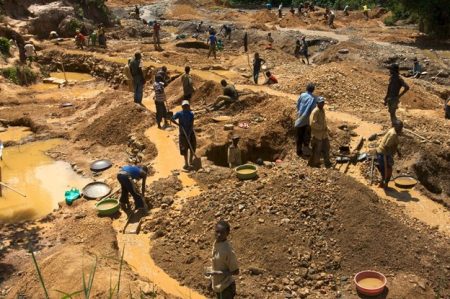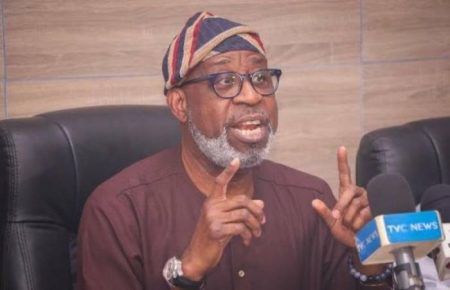 20 March 2014, Monrovia – Liberia is rich in natural resources, as a research has indicated that Barite a valuable mineral which occurs in a large number of depositional environments, and is deposited through a large number of processes including biogenic, hydrothermal, and evaporation, among others is found in Liberia.
20 March 2014, Monrovia – Liberia is rich in natural resources, as a research has indicated that Barite a valuable mineral which occurs in a large number of depositional environments, and is deposited through a large number of processes including biogenic, hydrothermal, and evaporation, among others is found in Liberia.
With all attention in Liberia at the moment on the emerging oil sector, FrontPageAfrica has gathered that Liberia is amongst a list of countries including Nigeria, Brazil, Canada, Chile and others where the mineral (Barite) can be found according to research but with such economic importance of the mineral, it is being mined in Liberia without public attention.
Barite is important to the extent that some 77% worldwide is used as a weighting agent for drilling fluids in oil and gas exploration to suppress high formation pressures and prevent blowouts.
Other uses of Barite are in added-value applications which include filler in paint and plastics, sound reduction in engine compartments, coat of automobile finishes for smoothness and corrosion resistance, friction products for automobiles and trucks, radiation-shielding cement, glass ceramics and medical applications (for example, a barium meal before a contrast CAT scan). Baryte is supplied in a variety of forms and the price depends on the amount of processing; filler applications commanding higher prices following intense physical processing by grinding and micronising, and there are further premiums for whiteness and brightness and color.
Historically Baryte was used for the production of barium hydroxide for sugar refining, and as a white pigment for textiles, paper, and paint. A FrontPageAfrica investigation has established that Barite is being mine in Liberia, in Margibi County by Chinese nationals. About a month ago, FrontPageAfrica reported Illicit gold mining activities on a massive scale over the Cestos River in ITI, Rivercess County, where Chinese and other Nationals were and are still mining the Cestos River on a daily basis.
The Ministry of Lands Mines and Energy, responsible for all mining activities in the Country said it was not aware. Fahnseth B. Mulbah, Inspector General for Mines at the Ministry of Land mines and Energy at the time termed such mining on the Cestos River as illegal because according to him miners with Class “C” license are prohibited from using machines to mine, and that the case was to be investigated.
– FrontPageAfrica



